Stan Bolovan (Roumanian Fairy Tales) By MITE KREMNITZ

Once upon a time, something happened. If it hadn’t happened, it wouldn’t be told.
At the edge of the village, where the peasants’ oxen break through the hedges and the neighbors’ hogs wallow in the ground under the fences, there once stood a house. In this house lived a man, and the man had a wife; but the wife grieved all day long.
“What troubles you, dear wife, that you sit there drooping like a frost-bitten bud in the sunlight?” her husband asked one day. “You have all you need. So be cheerful, like other folks.”
“Let me alone, and ask no more questions!” replied the wife, and became still more melancholy than before.
Her husband questioned her the second time, and received the same reply. But, when he asked again, she answered more fully.
“Dear me,” she said, “why do you trouble your head about it? If you know, you’ll be just sorrowful as I am. It’s better for me not to tell you.”
But, to this, people will never agree. If you tell a person he must sit still, he is more anxious to move than ever. Stan was now determined to know what was in his wife’s mind.
“If you are determined to hear, I’ll tell you,” said the wife. “There’s no luck in the house, husband,—there’s no luck in the house!”
“Isn’t the cow a good one? Are not the fruit-trees and bee-hives full? Are not the fields fertile?” asked Stan. “You talk nonsense, if you complain of any thing.”
“But, husband, we have no children.”
Stan understood; and, when a man realizes such a thing, it isn’t well. From this time, a sorrowful man and a sorrowful woman lived in the house on the edge of the village. And they were sorrowful because the Lord had given them no children. When the wife saw her husband sad, she grew still more melancholy; and the more melancholy she was, the greater his grief became.
This continued for a long time.
They had masses repeated and prayers read in all the churches. They questioned all the witches, but God’s gift did not come.
One day, two travelers arrived at Stan’s house, and were joyfully received and entertained with the best food he had. They were angels in disguise; and, perceiving that Stan and his wife were good people, one of them, while throwing his knapsack over his shoulder to continue his journey, asked his host what he most desired, and said that any three of his wishes should be fulfilled.
“Give me children,” replied Stan.
“What else shall I give you?”
“Children, sir, give me children!”
“Take care,” said the angel, “or there will be too many of them. Have you enough to support them?”
“Never mind that, sir,—only give them to me!”
The travelers departed; but Stan accompanied them as far as the high-road, that they might not lose their way among the fields and woods.
When Stan reached home again, he found the house, yard, and garden filled with children, in all not less than a hundred. Not one was larger than the other; but each was more quarrelsome, bolder, more mischievous and noisier than the rest. And, in some way, God made Stan feel and know that they all belonged to him and were his.
“Good gracious! What a lot of them!” he cried, standing in the midst of the throng.
“But not too many, husband,” replied his wife, bringing a little flock with her.
Then followed days which can only be experienced by a man who has a hundred children. The house and village echoed with shouts of “father” and “mother,” and the world was full of happiness.
But taking care of children isn’t so simple a matter. Many pleasures come with many troubles, and many troubles with many joys. When, after a few days, the children began to shout, “Father, I’m hungry!” Stan began to scratch his head. There did not seem to him to be too many children, for God’s gift is good, however large it may be; but his barns were too small, the cow was growing thin, and the fields did not produce enough.
“I’ll tell you what, wife,” said Stan one day, “it seems to me that there isn’t much harmony in our affairs. As God was good enough to give us so many children, He ought to have filled the measure of His goodness, and sent us food for them, too.”
“Search for it, husband,” the wife answered. “Who knows where it may be concealed? The Lord never does a thing by halves.”
Stan went out into the wide world to find God’s gift. He was firmly resolved to return home laden with food.
Aha! The road of the hungry is always a long one. A man doesn’t earn food for a hundred greedy children in a trice. Stan wandered on, on, on, till he had fairly run himself off his feet. When he had thus arrived nearly at the end of the world, where what is mixes with what is not, he saw in the distance, in the middle of a field which lay spread out as flat as a cake, a sheep-fold. By it stood seven shepherds, and in the shadow within lay a flock of sheep.
“Lord, help me,” said Stan, and went up to the fold to see whether, by patience and discretion, he might not find some employment there. But he soon discovered that there was not much more hope here than in the other places whither he had journeyed. This was the state of affairs: every night, at precisely twelve o’clock, a furious dragon came and took from the herd a ram, a sheep, and a lamb, three animals in all. He also carried milk enough for seventy-seven lambkins to the old she-dragon, that she might bathe in it and grow young. The shepherds were very angry about it, and complained bitterly. So Stan saw that he was not likely to return home from here richly laden with food for his children.
But there is no spur more powerful than for a man to see his children starving. An idea entered Stan’s head, and he said boldly, “What would you give me, if I released you from the greedy dragon?”
“One of each three rams shall be yours, one-third of the sheep, and one-third of the lambs,” replied the shepherds.
“Agreed,” said Stan; yet he felt rather anxious, lest he might find it too hard to drive the flock home alone.
But there was no hurry about that. It was some time before midnight. And besides, to tell the truth, Stan did not exactly know how he was to get rid of the dragon. “The Lord will send me some clever plan,” he said to himself, and then counted the flock again to see how many animals he would have.
Just at midnight, when day and night, weary of strife, for a moment stood still, Stan felt that he was about to see something he had never beheld before. It was something that can not be described. It is a horrible thing to have a dragon come. It seemed as if the monster was hurling huge rocks at the trees, and thus forcing a way through primeval forests. Even Stan felt that he should be wise to take the quickest way off, and enter into no quarrel with a dragon. Ah! but his children at home were starving.
“I’ll kill you or you shall kill me!” Stan said to himself, and remained where he was, close by the sheep-fold.
“Stop!” he cried, when he saw the dragon near the fold; and he shouted as though he was a person of importance.
“H’m,” said the dragon: “where did you come from, that you screech at me so?”
“I am Stan Bolovan, who at night devours rocks and by day grazes on the trees of the primeval forests; and if you touch the flock, I’ll cut a cross on your back, and bathe you in holy water.”
When the dragon heard these words, he stopped in the midst of his career; for he saw that he had found his match.
“But you must first fight with me,” replied the dragon, hesitatingly.
“I fight with you?” cried Stan. “Beware of the words that have escaped your lips. My breath is stronger than your whole body.” Then, taking from his knapsack a piece of white cheese, he showed it to the dragon. “Do you see this stone?” he said. “Pick one up from the bank of yonder stream, and we’ll try our strength.”
The dragon took a stone from the shore of the brook.
“Can you squeeze buttermilk out of the stone?” asked Stan.
The dragon crushed the stone in his hand, so that he crumbled it into powder. But he squeezed no buttermilk from it.
“It can’t be done,” he said rather angrily.
“I’ll show you whether it can be done,” replied Stan, and then squeezed the soft cheese in his hand, till the buttermilk trickled down between his fingers.
When the dragon saw this, he began to look about him to find the shortest road to run away; but Stan placed himself before the forest. “Let us have a little reckoning about what you have taken from the fold,” he said. “Nothing is given away here.”
The poor dragon would have taken flight, if he hadn’t been afraid that Stan might blow behind him, and bury him under the trees in the forest. So he stood still, like a person who doesn’t know what else to do.
“Listen!” he said, after a while. “I see that you are a useful man. My mother has long been looking for a servant like you, but has not been able to find one. Enter our service. The year has three days, and each day’s wages is seven sacks of ducats!”
Three times seven sacks of ducats! A fine business! That was just what Stan needed. “And,” he thought, “if I’ve outwitted the dragon, I can probably get the better of his mother!” So he didn’t waste many words about the matter, but set off with the monster. A long, rough road; but still it was too short, since it led to a bad end. It seemed to Stan as if he had arrived almost before he started.
The old she-dragon, old as Time itself, was waiting for them. She had made a fire under the huge caldron, in which she meant to boil the milk and mix it with the blood of a lamb and the marrow from its bones, that the liquid might have healing power. Stan saw her eyes glistening in the darkness when they were still three gun-shots off. But, when they reached the spot and the she-dragon perceived that her son had brought her nothing, she was very angry. This she-dragon was by no means lovable. She had a wrinkled face, open jaws, tangled hair, sunken eyes, parched lips, and a breath reeking with the smell of onions.
“Stay here,” said the dragon. “I’ll go and make arrangements with my mother.”
Stan would willingly have stood still further off, but he had no choice now that he had once entered upon this evil business. So he let the dragon go on.
“Listen, mother!” said the dragon, when he had entered the house. “I’ve brought you a man to get rid of. He’s a terrible fellow, who eats pieces of rock and squeezes buttermilk out of stones.” Then he told her what had happened.
“Just leave him to me,” she said, after hearing the whole story. “No man ever slipped through my fingers.”
So the matter remained as it had first been settled. Stan Bolovan became the servant of this monster and his mother. A terrible fix! I really don’t know what will come of it.
The next day, the she-dragon gave him his task. They were to give a signal to the dragon world with a club sheathed in seven thicknesses of iron. The dragon raised the club and hurled it three miles, then he set off with Stan, that he might also throw it three miles, or, if possible, further still. When Stan reached the club, he began to look at it rather anxiously. He saw that he and all his children together could not even lift it from the ground.
“Why are you standing there?” asked the dragon.
“Why, you see, it’s such a handsome club. I’m sorry,” replied Stan.
“Sorry? Why?” inquired the dragon.
“Because,” answered Stan, “I’m afraid you’ll never see it again in your whole life, if I throw it; for I know my own strength.”
“Don’t fear. Just throw it,” replied the dragon.
“If you really mean it, we’ll first go and get provisions enough to last three days; for we shall have to travel at least three days, if not longer, to get it.”
These words frightened the dragon, but he did not yet believe that it would be so bad as Stan said. So they went home for the provisions, though he wasn’t at all pleased with the idea of having Stan serve his year in merely going after the club. When they got back again to it, Stan sat down on the bag of provisions and became absorbed in staring at the moon.
“What are you doing?” asked the dragon.
“Only waiting for the moon to sail by.”
“Why?”
“Don’t you see that the moon is directly in my way?” said Stan. “Or do you want me to fling the club into the moon?”
The dragon now began to be seriously anxious. It was a club that had descended to him from his ancestors, and he wouldn’t have liked to lose it in the moon.
“I’ll tell you what,” he said. “Don’t throw the club. I’ll do it myself.”
“Certainly not. Heaven forbid!” replied Stan. “Only wait till the moon passes by.”
Then a long conversation followed; for Stan would not consent to have the dragon throw the club again, except on the promise of seven sacks of ducats.
“Oh, dear! mother, he’s a tremendously strong man,” said the dragon. “I could scarcely prevent him from throwing the club into the moon.”
The she-dragon began to be anxious, too. Just think of it! Would it be a joke to have a person able to throw any thing into the moon? She was a she-dragon of true dragon blood, however, and the next day had thought of a still harder task.
“Bring some water,” she said early in the morning, and gave each twelve buffalo skins, ordering them to fill them by evening, and fetch them all home at once.
They went to the well; and, before one could wink, the dragon had filled the twelve skins, and was in the act of carrying them back. Stan was tired, he had scarcely been able to drag the empty skins along. A chill ran through his veins, when he thought of the full ones. What do you suppose he did? He pulled a worn-out knife blade from his belt, and began to scratch the earth around the well with it.
“What are you doing?” asked the dragon.
“I’m not a blockhead, that I should go to the labor of filling the skins with water,” replied Stan.
“But how will you carry the water to the house, then?”
“How? Just as you see,” said Stan. “I’m going to take the well, you goose!”
The dragon stood with his mouth wide-open in amazement. He wouldn’t have had this done on any account, for the well was one that had belonged to his ancestors.
“I’ll tell you,” he said anxiously, “let me carry your skins home, too.”
“Certainly not. Heaven forbid!” replied Stan, digging on around the well.
Now, another long discussion followed; and this time, too, the dragon could only persuade Stan by promising him seven sacks of ducats.
On the third day, that is the last one, the she-dragon sent them into the forest for wood.
Before one could count three, the dragon tore up more trees than Stan had ever seen before in his whole life, and piled them up together. But Stan began to examine the trees, chose the very finest, climbed up into one and tied its top with a wild grape-vine to the next. So, without saying a word, he continued to fasten one splendid tree to another.
“What are you doing there?” asked the dragon.
“You see what I am doing,” replied Stan, working quietly on.
“Why are you tying the trees together?”
“Why, to save myself unnecessary work in pulling them up one by one,” said Stan.
“But how are you going to carry them home?”
“I shall take the whole forest, you goose! Can’t you understand that?” said Stan, continuing to fasten them together.
The dragon now felt as if he wanted to take to his heels, and never stop until he reached home.
But he was afraid that he should suddenly find Stan pulling the whole forest down on his head.
This time, as it was the end of the year’s service, it seemed as if the discussion would never cease. Stan did not want to listen at all, but had set his mind upon flinging the forest on his back at any rate.
“I’ll tell you what,” said the dragon, trembling with fear, “your wages shall be seven times seven sacks of ducats. Content yourself with that.”
“Well, be it so, as I see you are a good fellow,” replied Stan, and agreed that the dragon should carry the wood for him.
The year was now over. Stan was anxious only about one things—how he was to drag so many ducats home.
In the evening, the dragon and his mother sat talking together in their room; but Stan listened in the entry.
“Woe betide us!” said the dragon: “this fellow upsets us terribly. Give him money, even more than he has, only let us get rid of him.”
Ah, yes! but the she-dragon cared for money.
“Let me tell you one thing,” she said: “you must kill this man to-night.”
“I am afraid of him, mother,” he answered in terror.
“Have no fear,” replied his mother. “When you see that he is asleep, take your club and strike him in the middle of the forehead.”
So it was agreed. Ah, yes! but Stan always had a bright idea at the right time. When he saw that the dragon and his mother had put out the light, he took the pig’s trough, and laid it bottom upward in his place, covered it carefully with a shaggy coat, and lay down himself under the bed, where he began to snore like a person who is sound asleep.
The dragon went out softly, approached the bed, raised his club, and struck one blow on the spot where Stan’s head ought to have been. The trough sounded hollow, Stan groaned, and the dragon tiptoed back again.
Stan then crept out from under the bed, cleaned it, and lay down, but was wise enough not to close an eye all night long.
The dragon and his mother were rigid with amazement when they saw Stan come in the next morning as sound as an egg.
“Good morning!”
“Good morning; but how did you sleep last night?”
“Very well,” replied Stan. “Only I dreamed that a flea bit me just here on the forehead, and it seems as if it still pained me.”
“Just listen to that, mother!” cried the dragon. “Did you hear? He talks about a flea, and I hit him with my club!”
This was too much for the she-dragon. She perceived that it isn’t worth while to argue with such people. So they hastened to fill his sacks, in order to get rid of him as quickly as possible. But poor Stan now began to perspire. When he stood beside the bags, he trembled like an aspen leaf, because he was unable to lift even one of them from the ground. So he stood staring at them.
“Why are you standing there?” asked the dragon.
“H’m! I’m waiting,” replied Stan, “because I would rather stay with you another year. I’m ashamed to have any body see me carry away so little at one time. I’m afraid people will say, ‘Look at Stan Bolovan, who in one year has grown as weak as a dragon.'”
Now, it was the two dragons’ turn to be frightened.
They vainly told him that they would give him seven—nay, three times seven or even seven times seven—sacks of ducats, if he would only go away.
“I’ll tell you what,” said Stan, at last. “As I see you don’t want to keep me, I won’t force you to do so. Have it your own way. I’ll go. But, that I need not be ashamed before the people, you must carry this treasure home for me.”
The words were scarcely out of his mouth, when the dragon picked up the sacks and set off with Stan.
Short and smooth, yet always too long, is the road that leads home. But, when Stan found himself close to his house, and heard his children’s shouts, he began to walk slower. It seemed too near; for he was afraid that, if the dragon knew where he lived, he might come to take away the treasure. Only he was puzzled to find any way of carrying his money home alone.
“I really don’t know what to do,” he said, turning to the dragon. “I have a hundred hungry children, and fear you may fare badly among them, because they are very fond of fighting. But just behave sensibly, and I’ll protect you as well as I can.”
A hundred children! That’s no joke! The dragon—though a dragon of dragon race—let the bags fall in his fright. But, from sheer terror, he picked them up again. Yet his fear did not gain the mastery till they entered the court-yard. When the hungry children saw their father coming with the loaded dragon, they rushed toward him, each one with a knife in the right hand and a fork in the left. Then they all began to whet the knives on the forks, shrieking at the top of their lungs, “We want dragon meat!”
This was enough to scare Satan himself. The dragon threw down the sacks, and then took to flight, so frightened that since that time he has never dared to come back to the world.
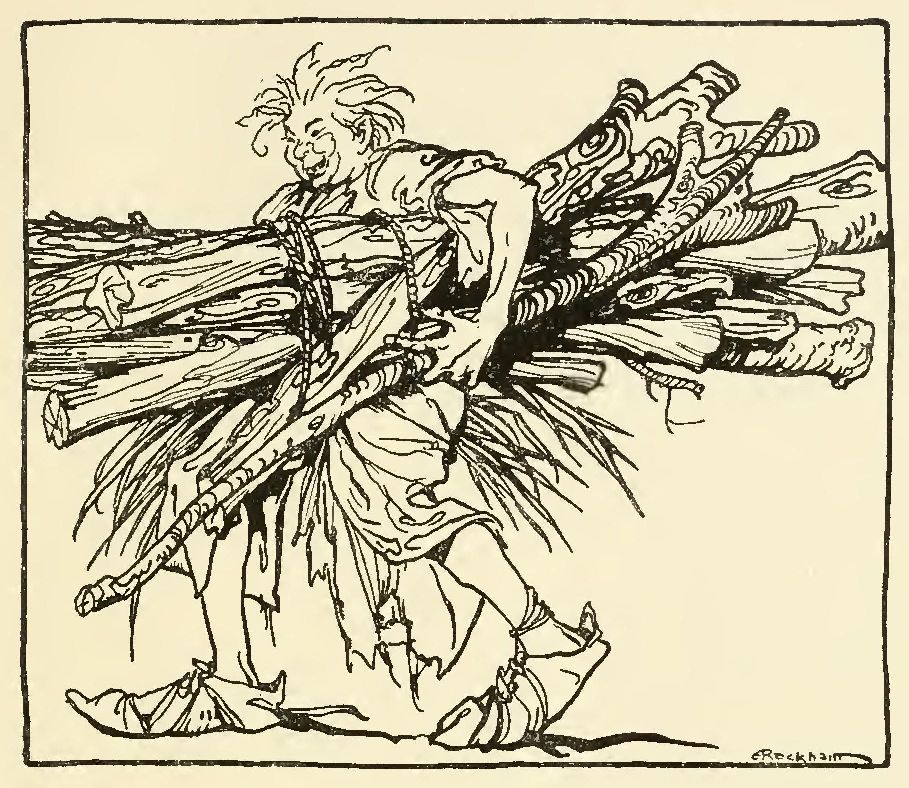
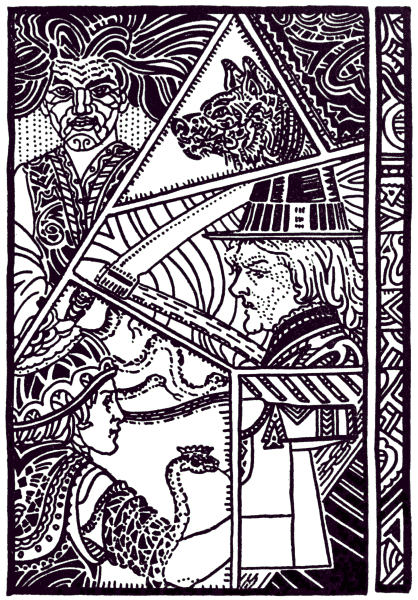
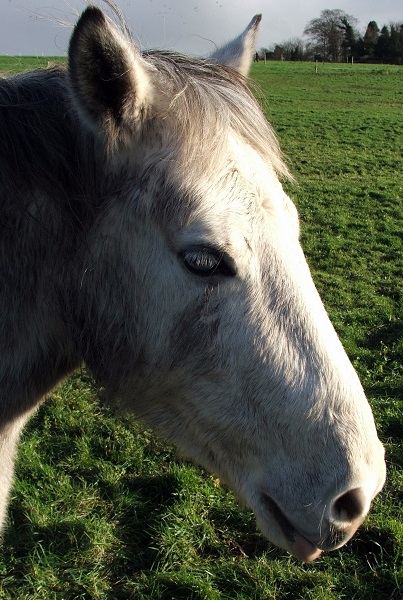

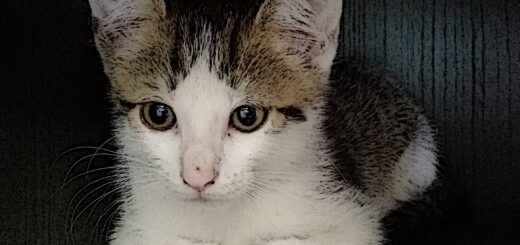

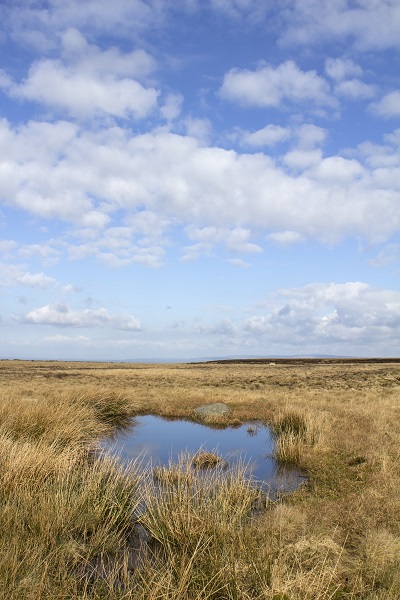

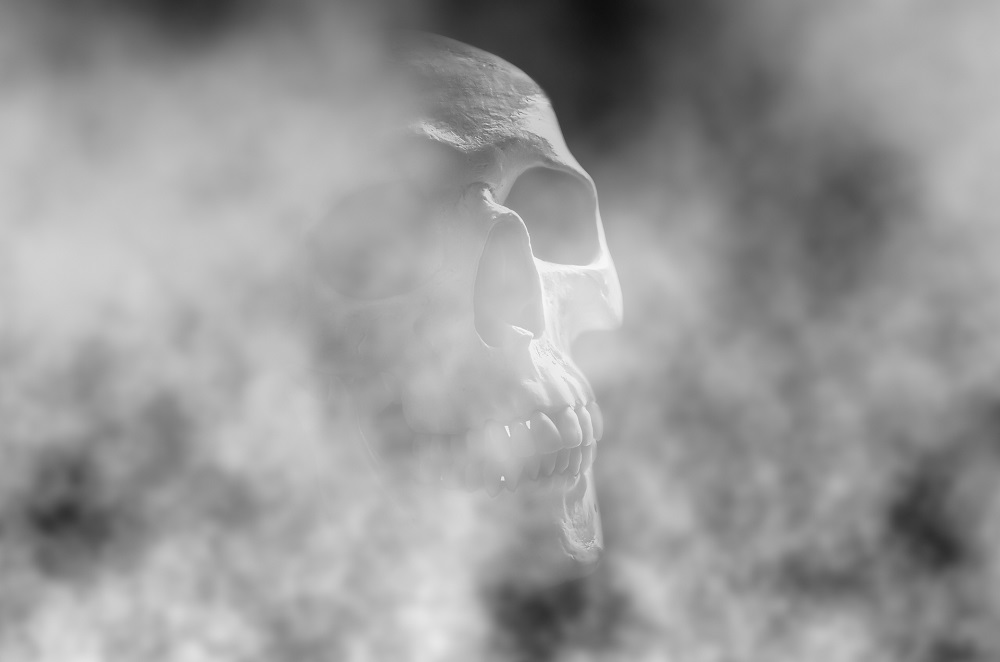




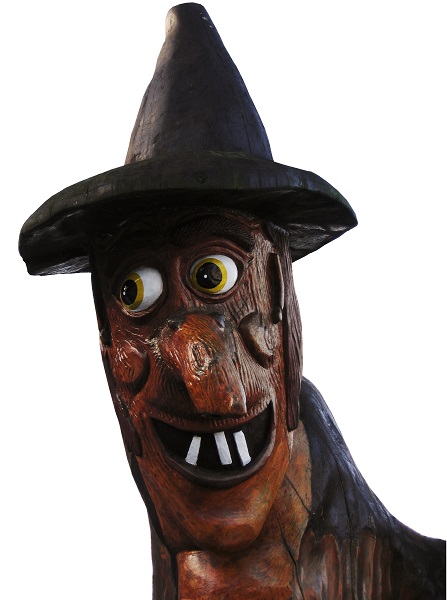

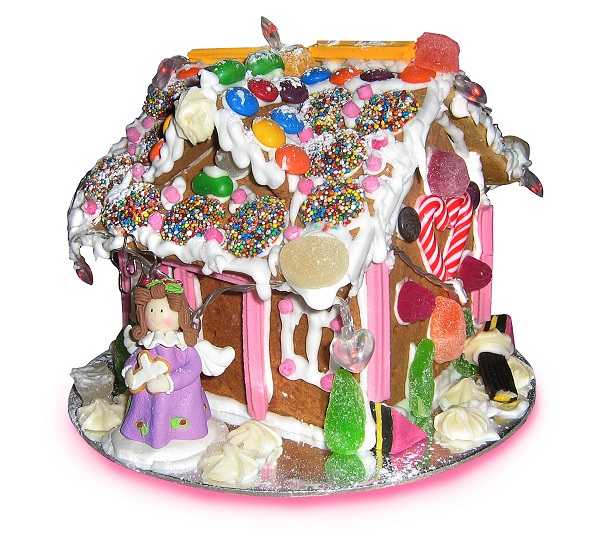
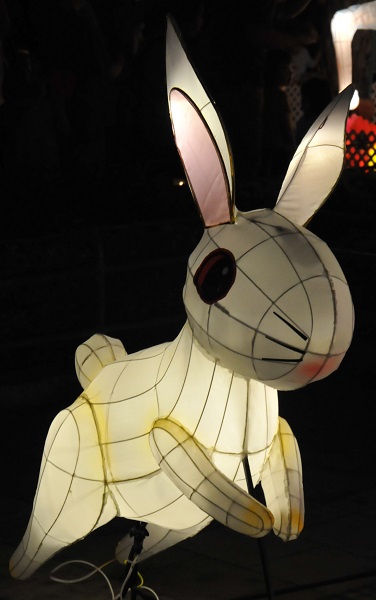




2 Responses
[…] Stan Bolovan by Mite Kremnitz […]
[…] But let’s not stick to clichees (even though the same post already did a lot of that), let’s get to know cunning and fearless Stan Bolovan […]